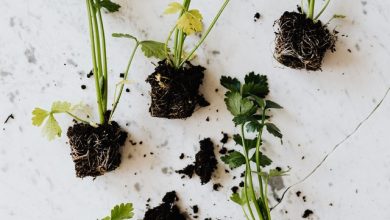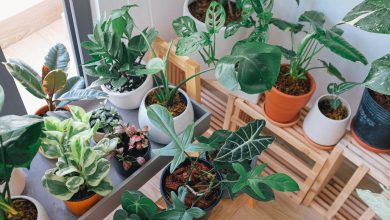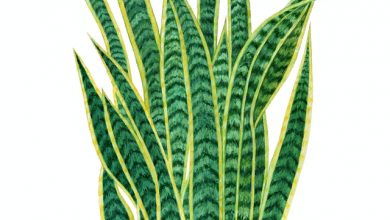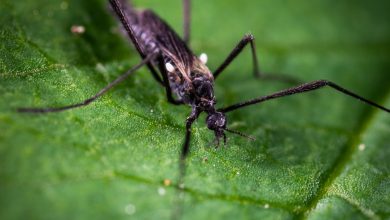How to Attract Bees to Your Garden
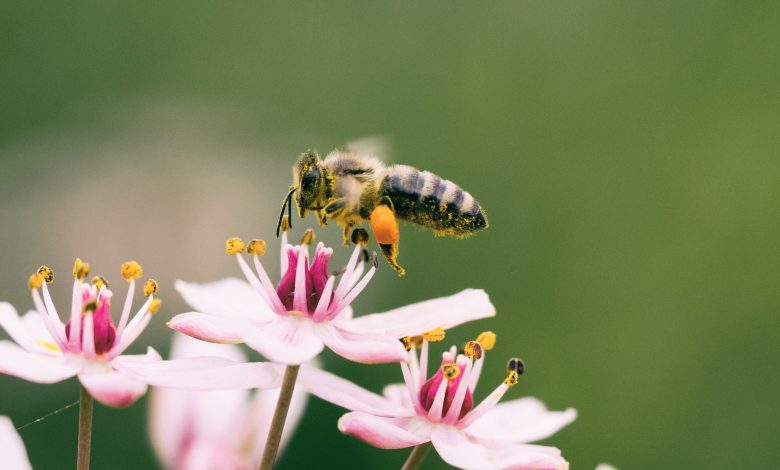
Bees are known for their nature of pollinating flowers, a great reason to attract them to the garden. But how do you attract bees to your backyard? Dipping in flower plants that could attract bees to your garden is the best method to attract bees. But let’s find reasons why you should attract bees to your garden first.
Why Do People Attract Bees to Their Garden?
People attract bees to their garden primarily for pollination. But we can also look out for other reasons too. Let’s see why bees are so important.
Pollination
The underlying reason many gardeners attract bees to their gardens is to fertilize the plants in the garden. Most plants need pollination to grow, and bees pollinate 80 percent of plants on earth. The world can suffer severe famine if bees go into extinction. They are the ultimate source of fertilization and crossbreeding between plants, as they perch on nectars and carry the pollen of one plant to the other. Many fruits and vegetables rely solely on the pollination of bees.
We can’t ignore the fact that there are other sources of pollination, such as wind and bats. But bees are known as the most reliable source and where the world gets the highest rate of cross-pollination from. The world now continues to see the economic importance of the creature, thereby treating it as essential to the continued existence of humanity.

Honey
Bees fertilize our food and still give us honey. This is a further reason why many attract bees to their gardens. The honey produced by the colorful, buzzing angels gives sweetness to which nothing compares. And we cannot forget how much the honey contributes to our health. Many doctors and therapists alike have recommended honey from the Apis mellifera (honey bee). If you’re the type that suffers from seasonal allergies, taking pure honey could fortify you. Honey helps to kill bacteria and germs in the body as much as it combats infection and helps manage even severe injuries. Other uses include curing burns, preventing infection, reducing cold and cough symptoms, reducing sleep disturbance, and curing bad breath and even stomach ulcers.
Bees are the sole producers of real honey that can give all the benefits mentioned above. Now, why wouldn’t you need honey in your garden?
Having known why bees are needed in the garden, how do you attract bees to your garden?
How to Attract Bees to Your Garden
These methods will surely invite bee swarms into your garden to pollinate your plants and all the other advantages.
Provide Them with Shade
Bees don’t like the fierce rays of the sun. They need something to protect them against the sun, and if you can fulfill their need, they will make your garden their home. Installing cover plants, such as coleus, can help. They will gratefully hide under this and help fertilize your plants when the time comes. This is a symbiotic relationship between you two, and bees aren’t lazy.
Plant Varieties of Flowers
If your garden is full of several flowers of different colors, expect bees to come and live with you in abundance. This is what they actually need. Their sights are naturally designed to detect colors very fast, so they locate flowers and their nectars. Yellow, violet, white, and blue are bees’ favorite colors.
Plant Flowers in Clusters
Bees love it when your flowers are not planted far away from each other. This is like you have provided them a feast, and they will honor your invitation. Pollination is more natural and sweeter this way.
Install Several Species of Plants
Planting several species of vegetables and flowers in your garden pulls different species of plants into your garden. You should plant shrubs, flowering trees, and flowers of many shapes and sizes. Bees are haters of monolith and lovers of creativity. If you could bring in the variation, many bees will stay in your garden.
Avoid Pesticides
Using pesticides in the garden means you’re trying to kill your bees too, since pesticides cannot differentiate between your friends and your enemies. It is actually best to avoid using any pesticide in the garden, except if you have diligently read the instructions and they spare your bugs.
Plant Local Herbs
The presence of local plants of different varieties in your garden can make the bees stay, as they will have lots of food to consume.
Help Them Hydrate
Every living thing cherishes comfort. If you make life comfortable for the few bees in your garden, they will invite their families and friends to your garden. Bees become really aggressive when they are dehydrated. Hydrating the bees in your garden keeps you safe from the precarious sting of bees.
Teach Your Kids About Them
Bees are actually beautiful to behold, but they become aggressive when you’re offensive towards them. Guide your children not to try to kill them for any reason.

Plants That Attract Bees to Your Garden
Naturally, a number of native plants attract bees to your garden. But it’s usually recommended to support the native plants with some “exotic” plants.
Here is a list of some plants you would like to have in your garden.
- Basil: Basil ocimum is one of the plants that bees love to perch on. Plant your basil in a drained soil where it can get enough photosynthesis. You can harvest the leaves of the basil so that it grows better. Don’t detach the flowers of your basil if you want to invite bees into your garden.
- Cotoneaster: The cotoneaster survives all seasons with a little sign of chlorophyll discoloration during winter. The plant attracts birds and other pollinators to your garden. Luckily, cotoneasters can grow even when things seem difficult, except for when there’s a total lack of water. Like basil, the cotoneaster grows better on loamy soil.
- English Lavender: This herbaceous perennial plant belongs to the family of mint. You cut the stem and dip it into the earth to plant it. When it grows, it comes out with brilliant purple flowers. Bees are usually attracted to the color and flowers of this plant. Don’t forget to dip a stem or two in your garden too.
- Alyssum: Alyssum is a cover plant that prevents vines from growing. It attracts bees to the garden too. Some gardeners plant them just for this purpose. An additional advantage of having this plant in your garden is that it spreads quickly and doesn’t seek much attention from the gardener. If the aromatic scent and the pink or purple flowers of alyssum could attract humans, it would sure host bees more.
- Pansies: As these spread just like alyssum, you have to be careful when you’re considering having them in your garden. But bees are always pulled by everything about pansies. You can have them in your garden during both spring and autumn.
- Pussy Willow: This flower blooms as soon as spring arrives. It is common in North America, and it has a grayish color with blooms that are as furry as the tail of a squirrel. The flowers attract bees a lot.
- Siberian Squill: If you recall that blue is one of the colors that attract bees, you will know that this flower has to be on the list of what you should have in your garden. The siberian squill also spreads quickly, so you may want to control the growth.
- Snowdrops: If you need flowers that would stand for others when winter is almost bidding you farewell, then snowdrops might just be the best to consider. With the necessity of variation of garden plants based on seasons, you may want to plant snowdrops in your garden too.
- Peony: This flower comes up during spring and has both the scent and colors that make bees perform an orchestra around it. It grows well in loamy soil, especially in an area where winds won’t hit it directly.
- Milkweed: Milkweed is one of the choicest on the scale of preference of bees.
- Bee Balm: The name of this plant says a lot about its relationship with bees. The flower has blooms of various shades and attracts bees as well.
Successfully attracting bees to your garden takes a lot of careful choice in flowers. If you don’t choose flowers carefully, you may be killing the bees in your garden instead of feeding and nurturing them. You have to know where to plant, when to plant, how to plant, and what to plant. It’s vital to forget using pesticides on the herbs in your garden when you want bees therein. Also, don’t forget that you must guide your children to respect the bees and not swat them.
